How to be a gravel pro - Vermeulen's top 10 tips
How Alexey Vermeulen forged a successful career as a privateer

It's Gravel Week on Cyclingnews, and to cap off our series of articles highlighting the fastest-growing discipline in cycling, we delve into how former roadies, mountain bikers and cyclo-cross racers are moving to gravel and making a living racing their bikes in a non-traditional way. We speak to former WorldTour rider Alexey Vermeulen about his transition to gravel.
In 2016, Vermeulen was on the traditional route to becoming a successful professional road cyclist. He'd been racing since he was a kid in Michigan, won the Junior road national championship before his 17th birthday, did the hard yards in Europe with the BMC Development Team and then signed his first WorldTour contract with LottoNL-Jumbo (now Jumbo-Visma) at the age of 20.
His trajectory made an abrupt turn when the Dutch team did not renew his neo-pro contract. But, when one door closes, another always opens and Vermeulen has transformed himself from road pro to multi-discipline privateer with a focus on gravel.
Making a living as a gravel racer is the exact opposite of being a road pro, with none of the luxuries a rider enjoys with a traditional team, and a raft of public and sponsor obligations that would be deal-breakers for many WorldTour riders. But Vermeulen loves the work of cultivating relationships with sponsors, being self-sufficient, and sharing his experiences on social media platforms. However, his girlfriend's long-haired miniature dachshund Willie often steals the show, riding in a pack on Vermeulen's back.
From the long, lonely hours spent training for 12-hour gravel races or doing intervals in preparation for road races, Vermeulen is embracing "being human" off the bike and shared with Cyclingnews his top 10 steps for making a living as a privateer.
1. Pick the races you love
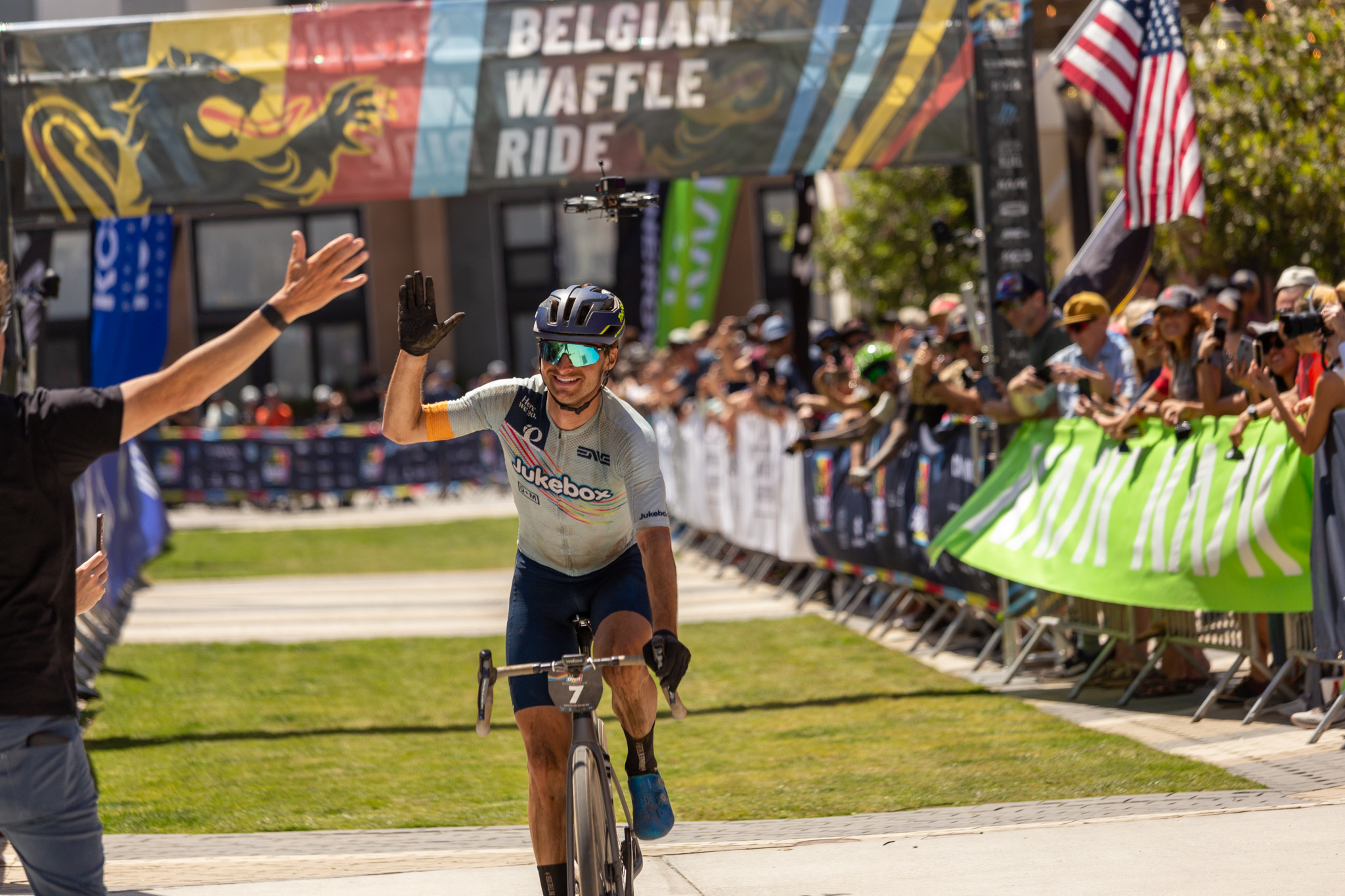
While Vermeulen is part of the Life Time Grand Prix series and has done the first two rounds - the Sea Otter MTB cross country race and Unbound Gravel - he's been able to pick and choose the races that bring him joy, including riding the Belgian Waffle Ride in San Diego, GoPro Mountain Games in Vail, Colorado with a mix of MTB cross country and road time trialling (he won the TT), the US Pro Road National Championships.
"I've never wanted to give up the road. I thought the road has a lot of flaws and it didn't fit exactly what I thought I was good at, which is being a human off the bike," Vermeulen says. "I still love road racing and do it where I can."
US Pro championships are typically for riders on pro teams, but Vermeulen finished fourth in last year's road race in a thrilling last-lap battle in Knoxville with winner Joey Rosskopf, Brent Bookwalter, Kyle Murphy, Lawson Craddock and Chad Haga. Although he lost the tactical battle with the Rally Cycling riders Rosskopf and Murphy, Vermeulen says that kind of full-on, go-for-broke tactical battle is the one thing he misses in gravel races.
The latest race content, interviews, features, reviews and expert buying guides, direct to your inbox!
"It's kind of starting to happen in gravel racing, but doesn't happen in mountain biking - that just full-on, everyone has a chance, throw your match where you think it works. It's a very beautiful way of racing. That's the fun of road racing, that I feel happens less than gravel. It's not that I want it to come into gravel, but I missed the tactics of road racing."
There is a huge variety of types of gravel races - some mountainous, some flat, some tame, some wild. Vermeulen advises: "Pick your races wisely. Figure out what you enjoy. There's such a vast difference between a Barry Roubaix in Michigan and Unbound. There's fun in both, so figure out what you enjoy."
2. Build a support team
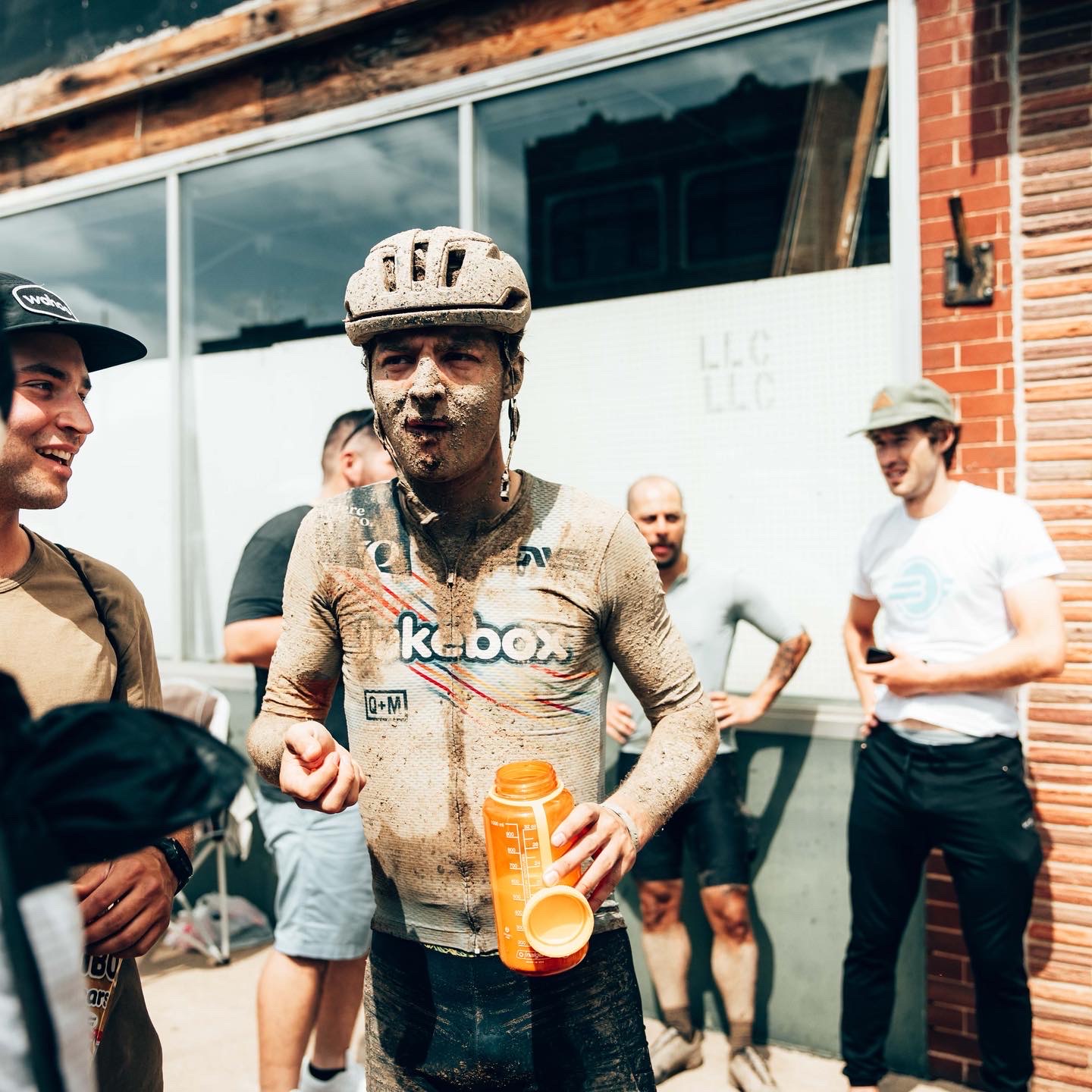
Vermeulen tried to wing it in his first year of racing gravel, trying to get help from various people in feed zones but has had much more success since getting his own crew who are fully focussed on what he needs, he says, and it lessens the stress.
"You need someone to have your back when shit hits the fan. The mechanical stuff, we're all supposed to be dealing with that on the course - that's expected. But if you're racing at the top level, that is probably the biggest disparity between someone finishing 20th and someone finishing first or in the top five.
"If I go, I'm paying someone to be full support in the feed zone. We're in the Unbound feed zones for less than 45 seconds on the long end. You can't do that alone. That's part of the race. It's not as insane as a triathlon transition - it's important to be fast, but also not forget what you need."
3. Get to know the courses
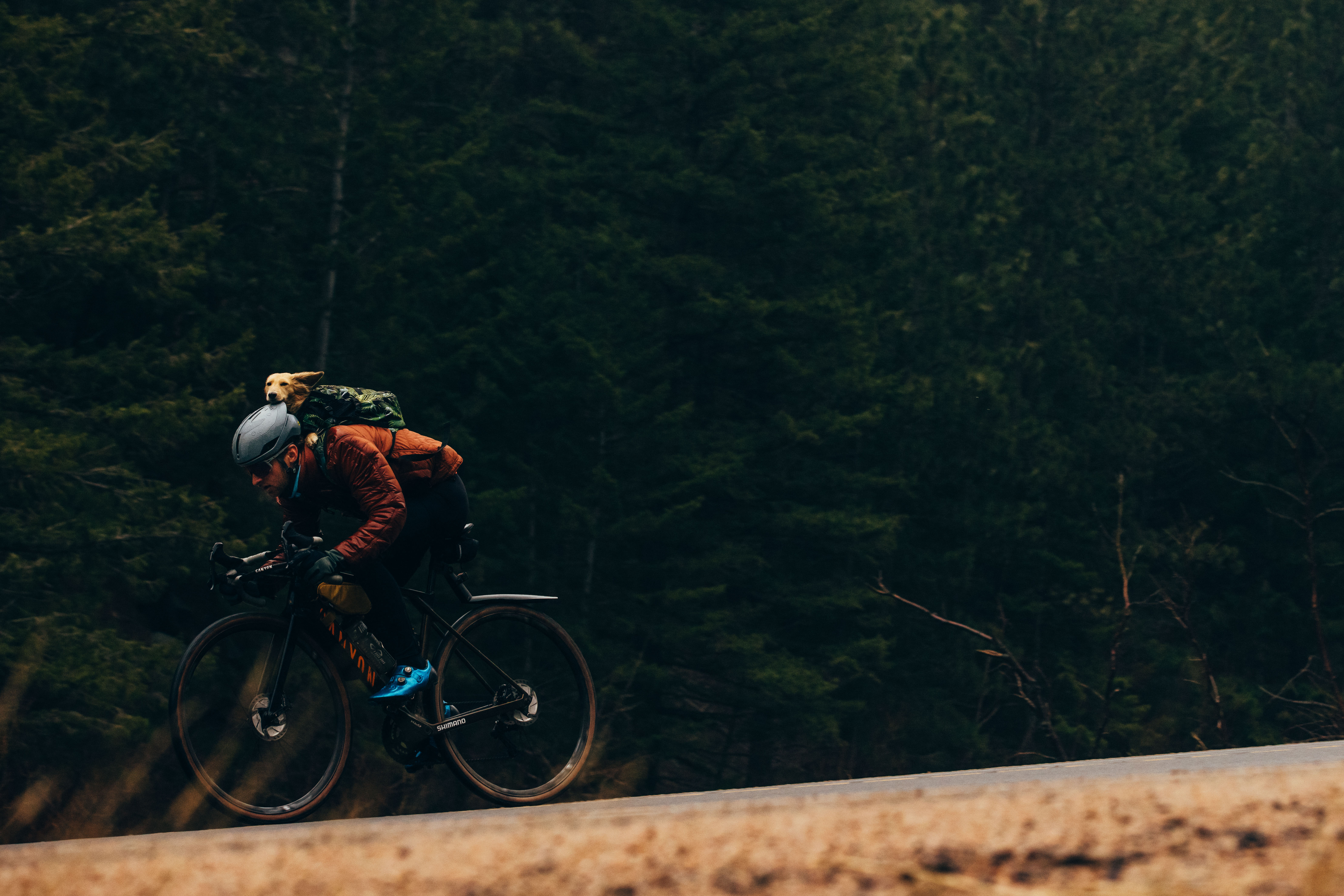
Once you've organised your calendar, it's time to make a plan for race day.
"A lot of it is logistics. You don't have a director who's gone out and driven the course to tell you about that climb that's 20km in and that's going to split the field, you need to have ridden that or driven it or know it. So either you get really good at Google Maps and studying things, or you spend a lot of time out on course.
"Very rarely do I get to ride the whole course, but there are not any courses I don't ride at least the first 20 and last 20."
4. Know how much food you need
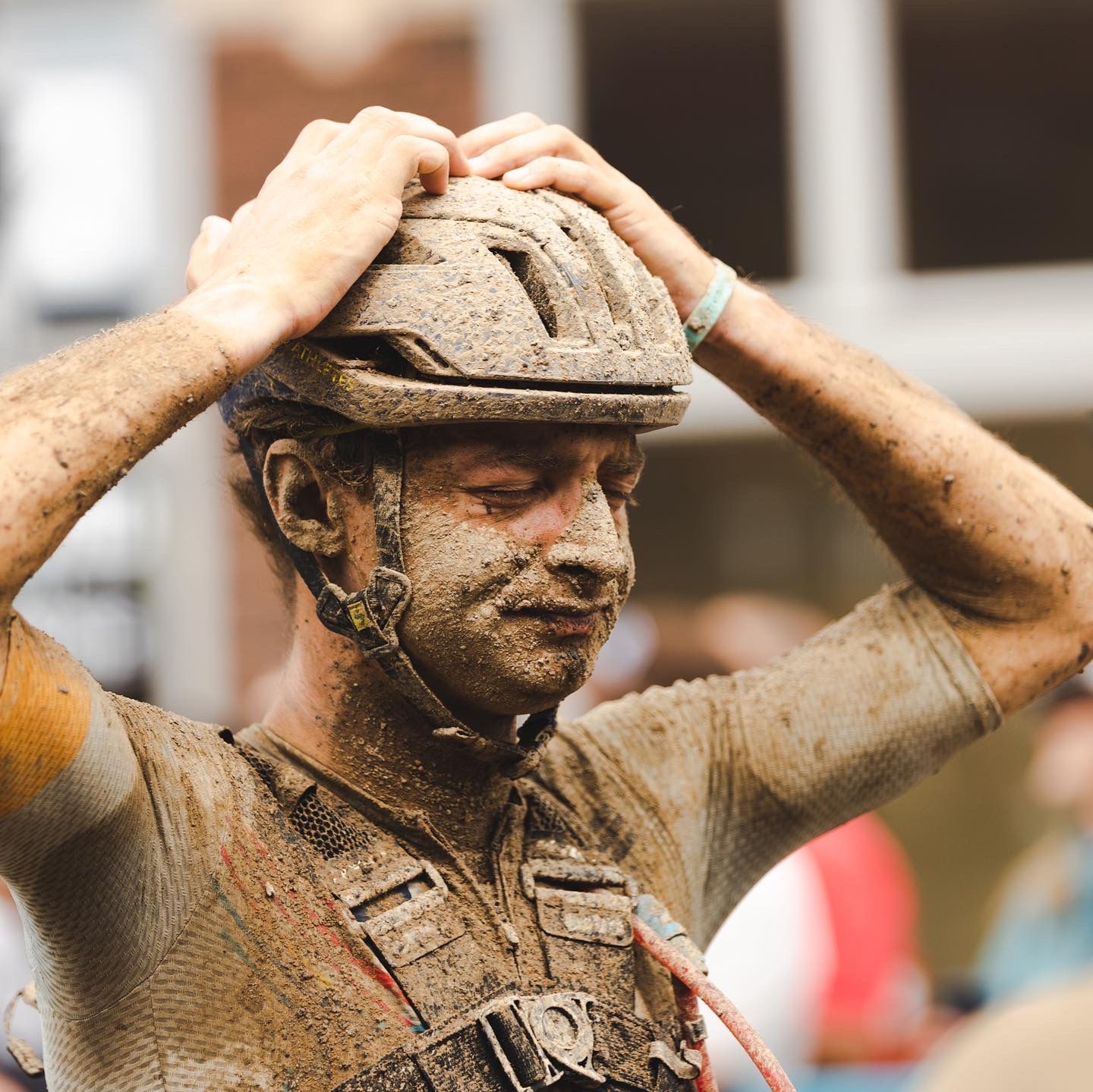
Most pros are intimately familiar with how much they need to eat and drink during a race, having learned the hard way either by bonking from not having enough or getting bogged down by taking in too much. Vermeulen advises that anyone attempting to specialize in gravel races dial in their nutrition.
"A lot of us have a specific plan. Guessing that the first feed zone at 77 miles is going to be about three and a half hours, for Unbound, I had two bottles with a full serving of SuperFuel, which is either 400 calories or 100 grams of carbs, and two litres of plain water on my back, and I had food."
Riders might want to make adjustments along the way, based on circumstances such as the thick mud at Unbound which meant keeping their hands on bars for long stretches.
"Maybe I didn't eat enough as much as I needed and I need three bottles coming out of this feed zone because I'm having a much easier time drinking my calories today. That's what I did, I grabbed three SuperFuel bottles, and grabbed my hydration pack - I had the choice of two hydration packs, one that had electrolytes in it.
"It's important to have a plan and be able to execute - that's the first step to winning any of those races."
5. Know how to fix your bike
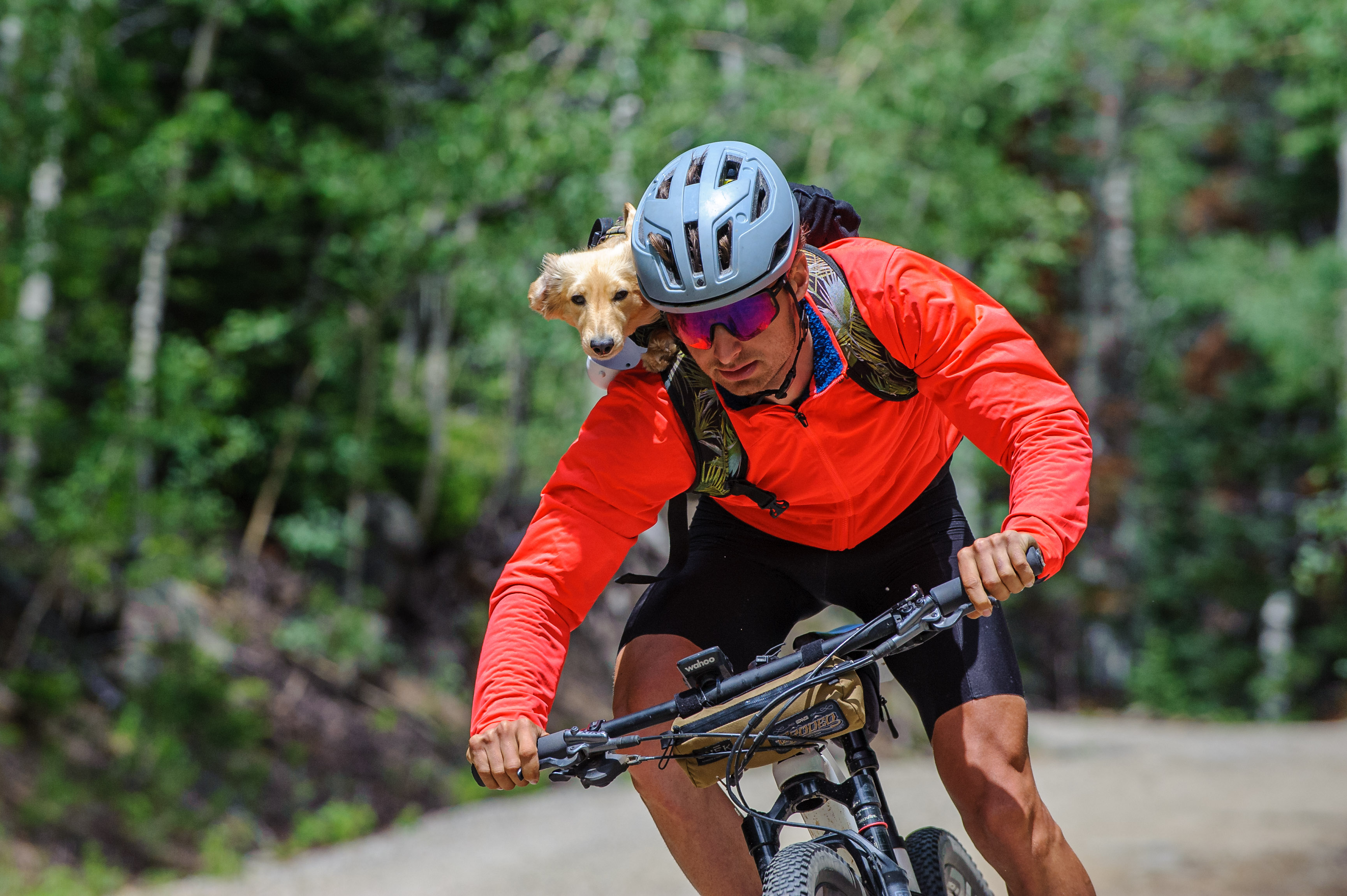
One point Vermeulen emphasised repeatedly was knowing how to fix your own bike and not leaving it to chance on race day.
"Learn how to use them in your garage when you're not stressed," he says, having spent most of the pandemic learning to wrench.
"I pride myself on being able to do all of that. There are very few things that I go to the mechanics to ask for help.
"You have to know how to use all the tools you have. Cam Wurf flatted and didn't really know how to use a tire plug. Sealant fixes most things on the road. That is not the case for gravel. Most times you flat, you're going to have to plug it and it's probably the fastest way."
It's also important to go into a race prepared for any reasonable incident. "I have zip ties, I have duct tape. The reality is I want to finish the race - it means that much to me. You're out there and you don't know what can happen."
But you also can't carry everything.
"Look what happened to Lachlan [Morton at Unbound] - crashing his junction box out - that's not a realistic thing to carry. But you can carry a chain link, you can carry multiple plugs, multiple tubes. I had six plugs taped on my bike, I had two plugs in my pocket. I had duct tape, I had super glue, all the little things that are light and easy.
"One thing I had happen two years ago at Unbound, I used my CO2 head so much the gasket blew out. I had to carry two CO2 heads this year. It's little things that even pros coming from the road or anybody, we tend to not have to deal with those things."
6. Take some risks
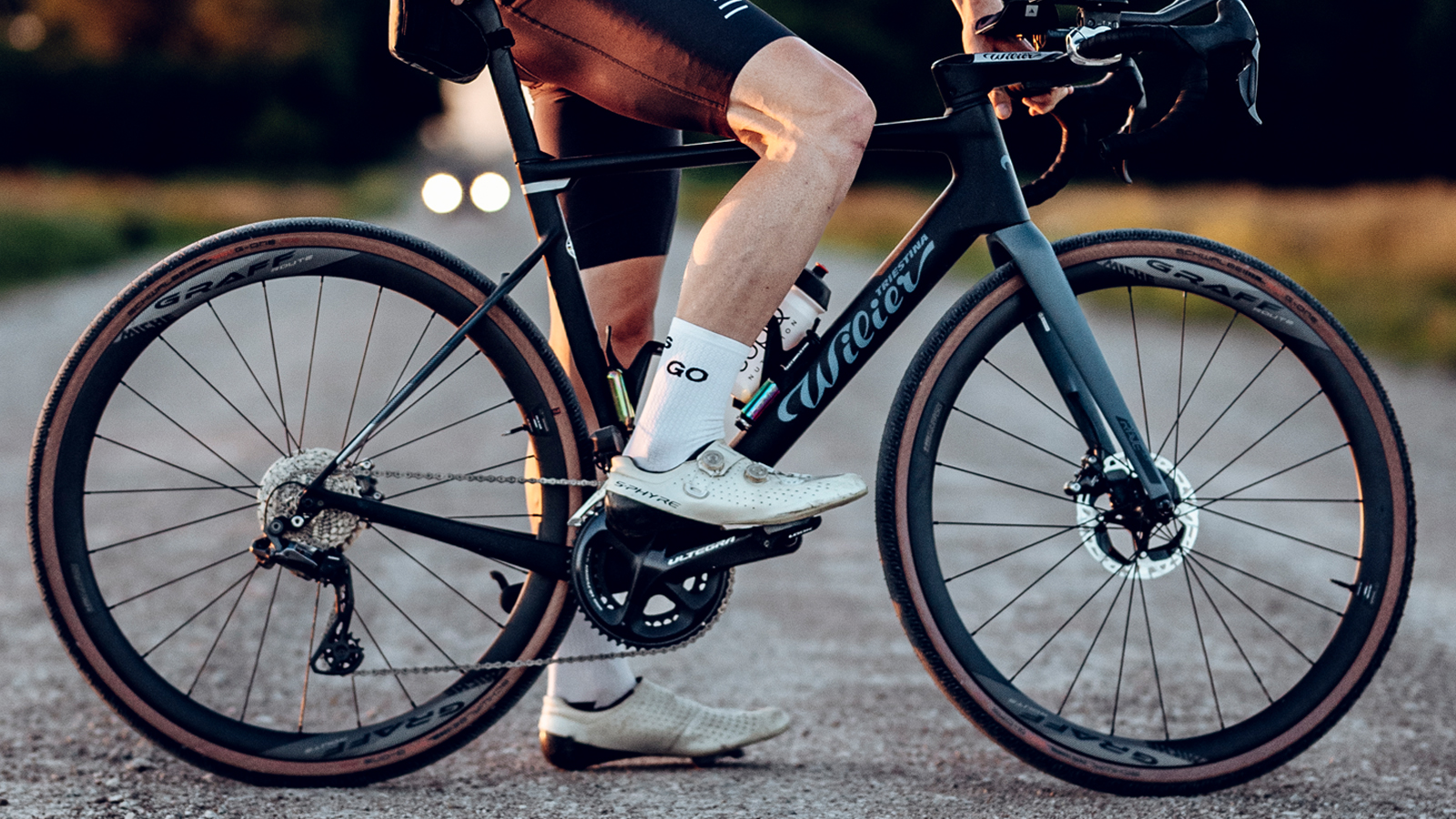
While road tactics are more focussed on teammates helping to pull or attack, the majority of the difference made in gravel racing is with equipment, and Vermeulen pointed to a few examples of where well-calculated risks made the difference.
"(At Unbound) we all ran mountain bike pedals. And Ivar (Slik, who won) was by far one of the strongest all day, but he's also on road pedals, and where did those matter? In a sprint. It's risky. Keegan [Swenson, second] ran full slick tires. There are not many guys I know that could have run that. It's those little things that you do to save energy all day that put you in a position to actually win these events."
Now that gravel is attracting more specialists, he says there isn't any one rider who is far above the rest.
"I also don't think there's enough time for many people to peak for one event like you see in road racing. Without a continued fight for position or team tactics, after the race splits up in a gravel race, it's all about the small choices in nutrition and equipment."
7. Enjoy the humble pie
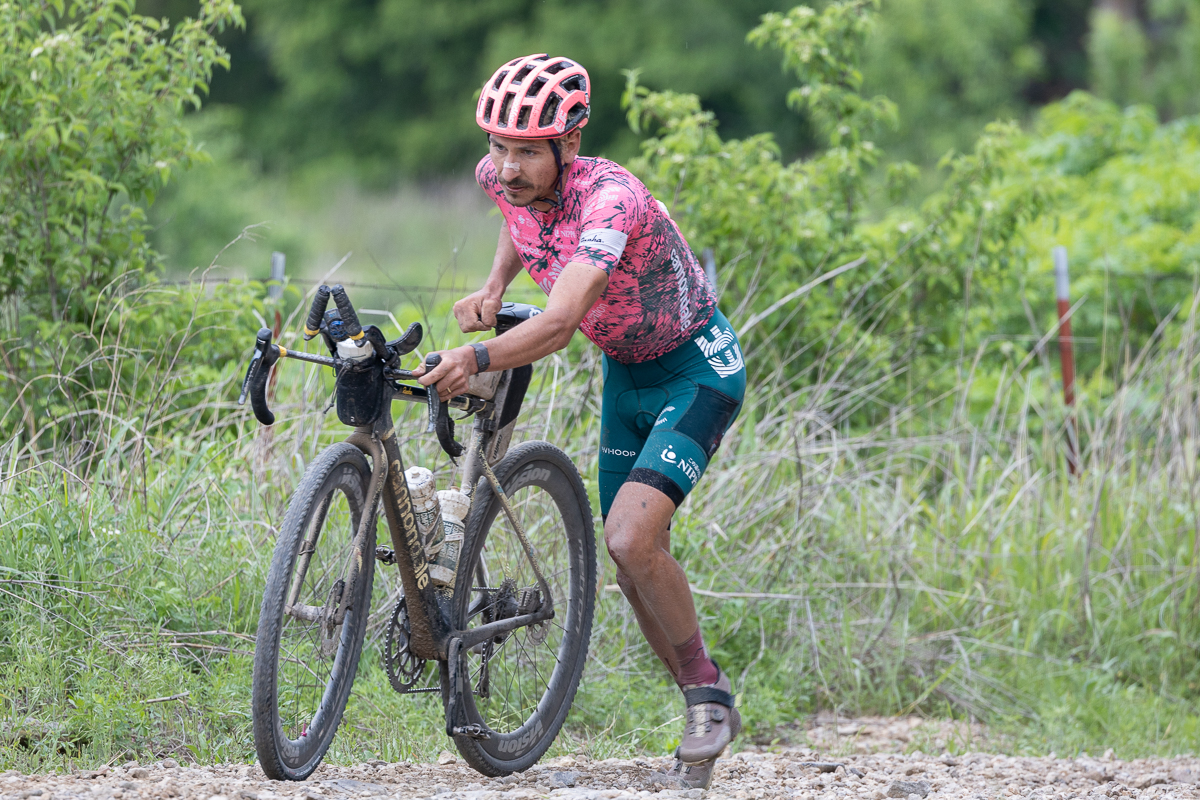
Vermeulen echoed the sentiments of Cameron Wurf, who said he thought gravel was becoming so specialised to be incompatible with road racing, but added that road racers have learned the ropes and become successful.
"If you're coming from the road, you have to go to an event and learn before you expect to be up there," he says. "That is the beauty of gravel but it's also the detriment of it. It takes time, and you have to not be frustrated. You saw that with the 'Dutch mafia'. Laurens [ten Dam] took a bunch of people over here last year, and they all struggled. But they all came back and started doing well because they took a year to learn.
"It's learning how they want to have their bikes, how they want to eat, how they want to travel, where they want to stay, how long should they stay in the US, how many races they should do beforehand. It doesn't mean you're not going to have bad luck, but you're limiting it. And that's the name of the game in gravel."
8. Manage your time wisely
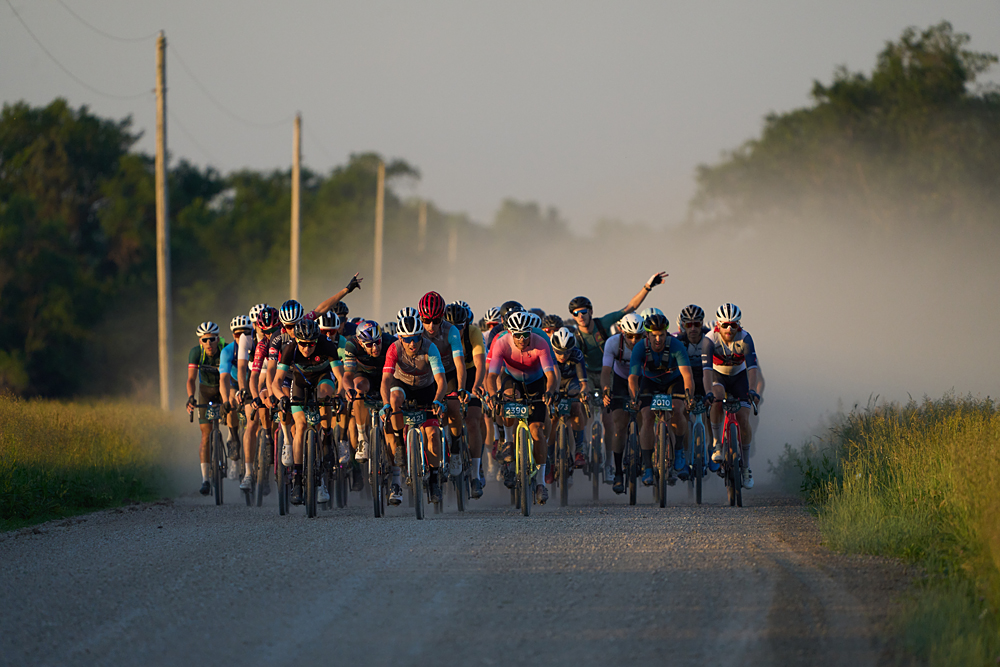
Being your own boss means being your own manager, too. It means long days, lonely rides and above all, making sure you have time to meet all of your obligations while still having time to 'be human off the bike'.
At Unbound, Vermeulen says, he arrived on Wednesday night before the race.
"The entirety of Thursday from 7am until 1 was working and that was my choice. I knew I wanted to get as much done as I possibly could that day. Friday was pretty much focused completely on From the Ground Up [his video documentary project following new riders preparing for the Leadville 100] and what I did with them. I met a couple of sponsors and then hung around the expo for a minute.
"Then I told myself, there's no question I'm out of here by three and focused on myself from then on. And that is setting boundaries on what you can do and what you can control. But also remembering that you get paid to help that brand, not just race for that brand."
9. Make yourself known
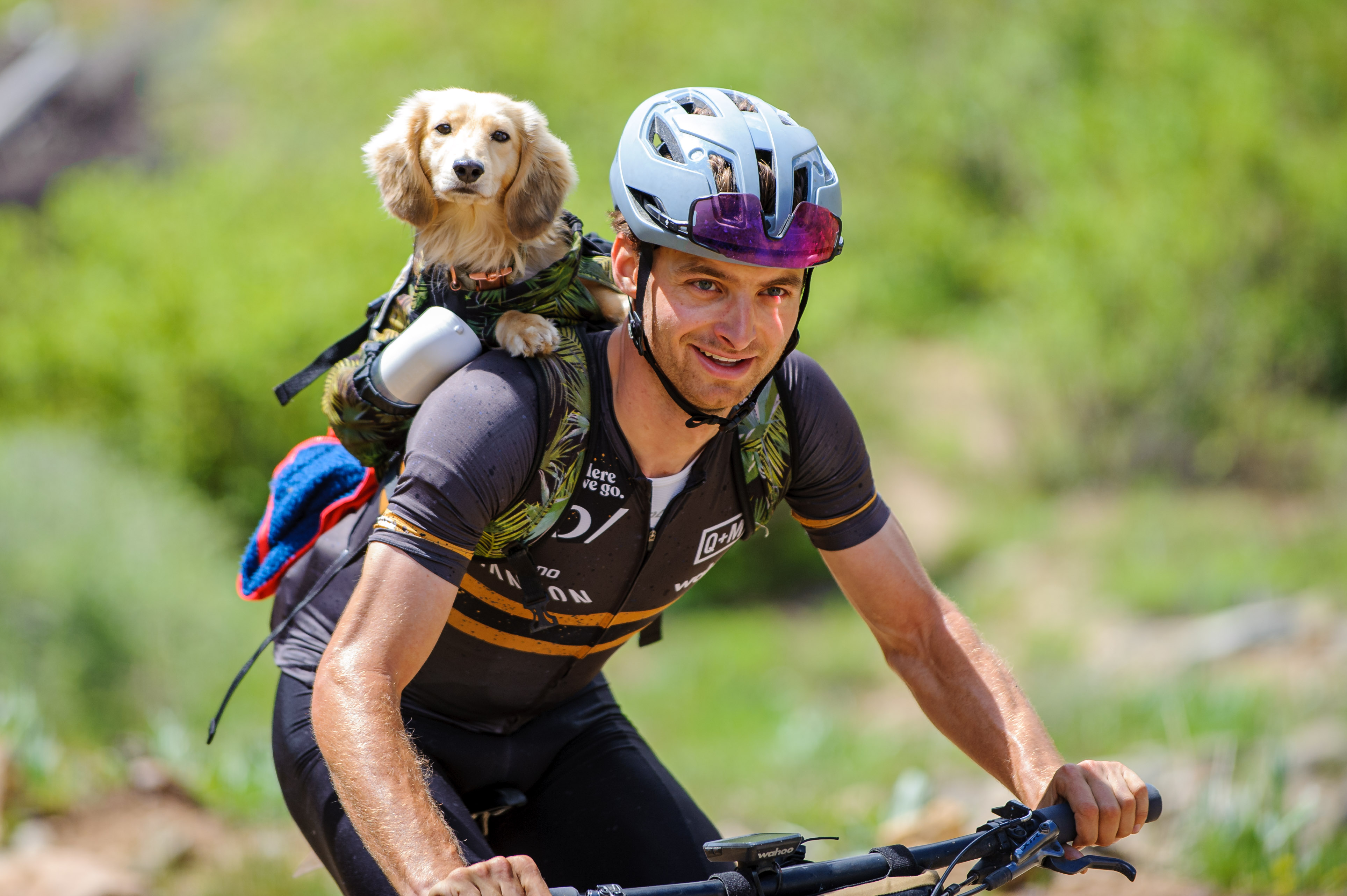
If there is one thing that Vermeulen is known for, it's not riding a bike fast - it's Willie. The dog's furry, flapping ears have been the focus of a mockumentary about the "fastest known dog" and how the shape of his head gives him an aerodynamic advantage. Willie has his own Instagram account and, Vermuelen says, deserves all the treats he gets.
"I did not plan on any of that but Willie has been an asset. I always make this joke that he's on my Life Time Grand Prix trading card and nobody takes it because of me. They take it because they see Willie's face."
10. Cultivate relationships
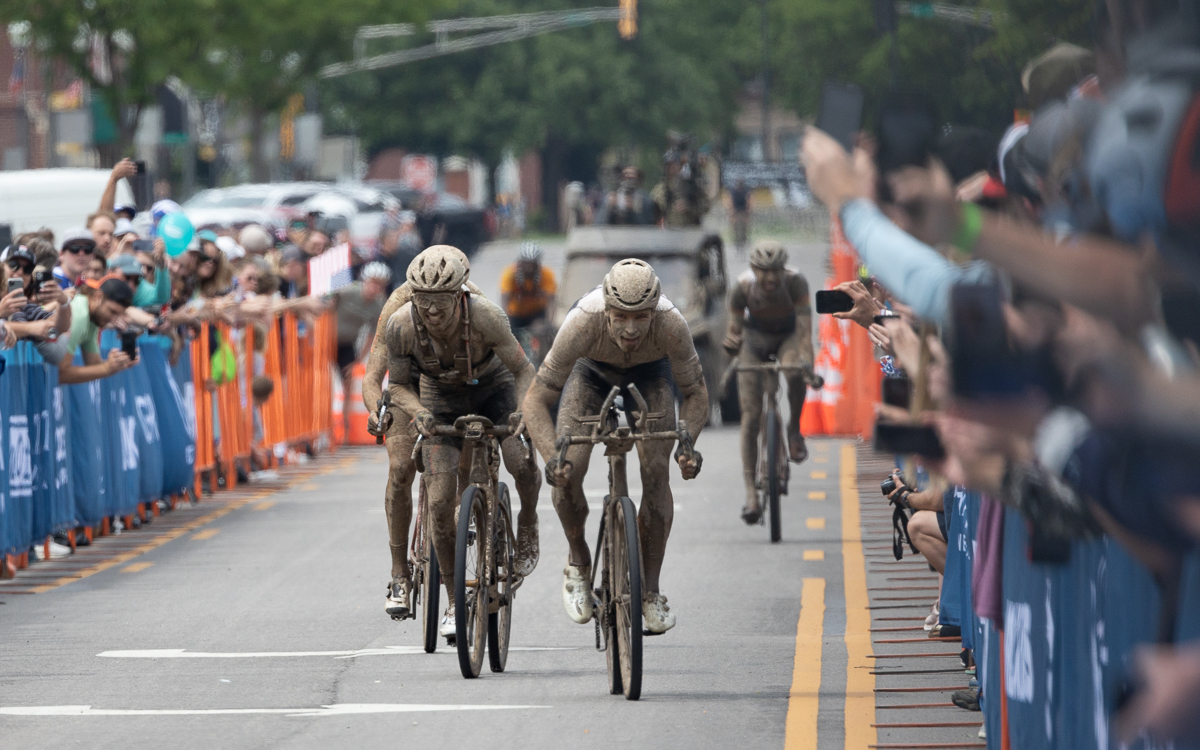
This final point is the most important for becoming a professional gravel racer. Unless you have income, you're not a pro racer, and Vermeulen is part of a different kind of team - he refers to it as a 'grouping' of riders sponsored by Jukebox, a printing company, along with riders like Ashton Lambie and Ruby West. Along with the team support, each rider has their personal sponsors and projects, with Vermeulen supported by bike and wheelmaker Enve Composites, and clothing manufacturer Pearl Izumi, among others.
"Since I left the WorldTour I focused on that relationship because I've always loved the people over there," Vermeulen says of Enve. "In 2018 I bought my first wheelset and now they are pretty much one of our biggest supporters and it's pretty awesome to see that work because it's not typical. It's very hard to quantify."
Vermeulen says keeping a strong relationship with a sponsor means understanding their needs, knowing what works and being proactive.
"You have to figure out where their marketing value lies because the one thing about leaving a team situation like in the WorldTour is that everything is on you. You are the business, you are the brand and you can't blame anybody else - there are no directors, no managers, everything is on you. And that can be exhausting but it can also be rewarding."
The reward comes with a lasting partnership where, unlike in the WorldTour where riders constantly change teams and sponsors, and there's a sense of instability, Vermeulen enjoys being a part of a company and being loyal to a brand.
"Racing is always going to be there and it's important, but it's not the only thing. It's the relationships that are way more important."
The benefits are getting an unreleased bike to ride to victory in the Belgian Waffle Ride San Diego, but Vermeulen downplayed his role in helping the company to develop products.
"I was the first person in the US in their company to get to ride it," Vermeulen says of the soon-to-be-available gravel frame. "By the time I rode it, it was already going to production, so any feedback I give is not actually making the bike better this iteration. It's more of a real-world situation - how does the paint hold up? How does the bike travel? What what's an issue when you're building the bike?
"Those are the kinds of things that I offer as value to a sponsor. Everyone over at Enve can ride a bike just as hard as I can, and probably do on their lunch ride, so it's [about] finding the value that's possibly different than something those guys do."

Laura Weislo has been with Cyclingnews since 2006 after making a switch from a career in science. As Managing Editor, she coordinates coverage for North American events and global news. As former elite-level road racer who dabbled in cyclo-cross and track, Laura has a passion for all three disciplines. When not working she likes to go camping and explore lesser traveled roads, paths and gravel tracks. Laura specialises in covering doping, anti-doping, UCI governance and performing data analysis.